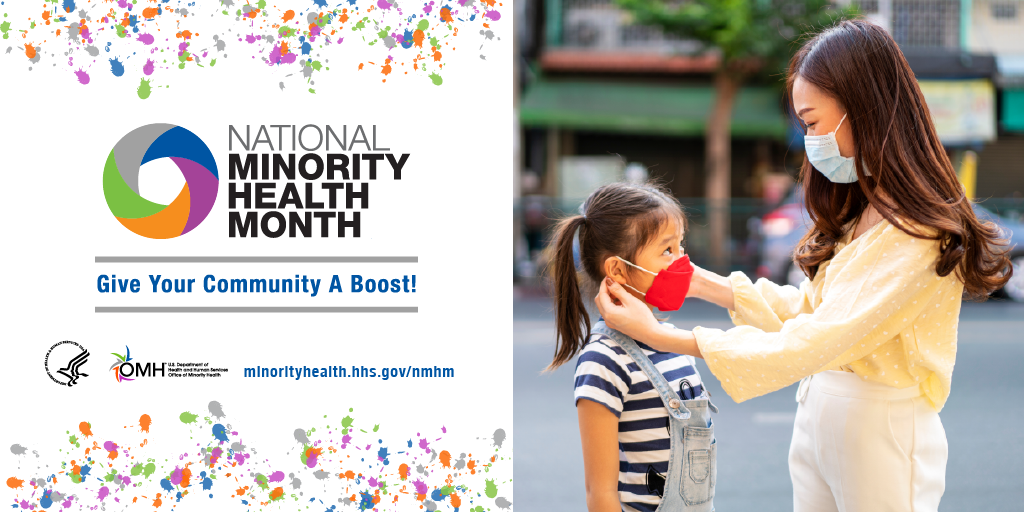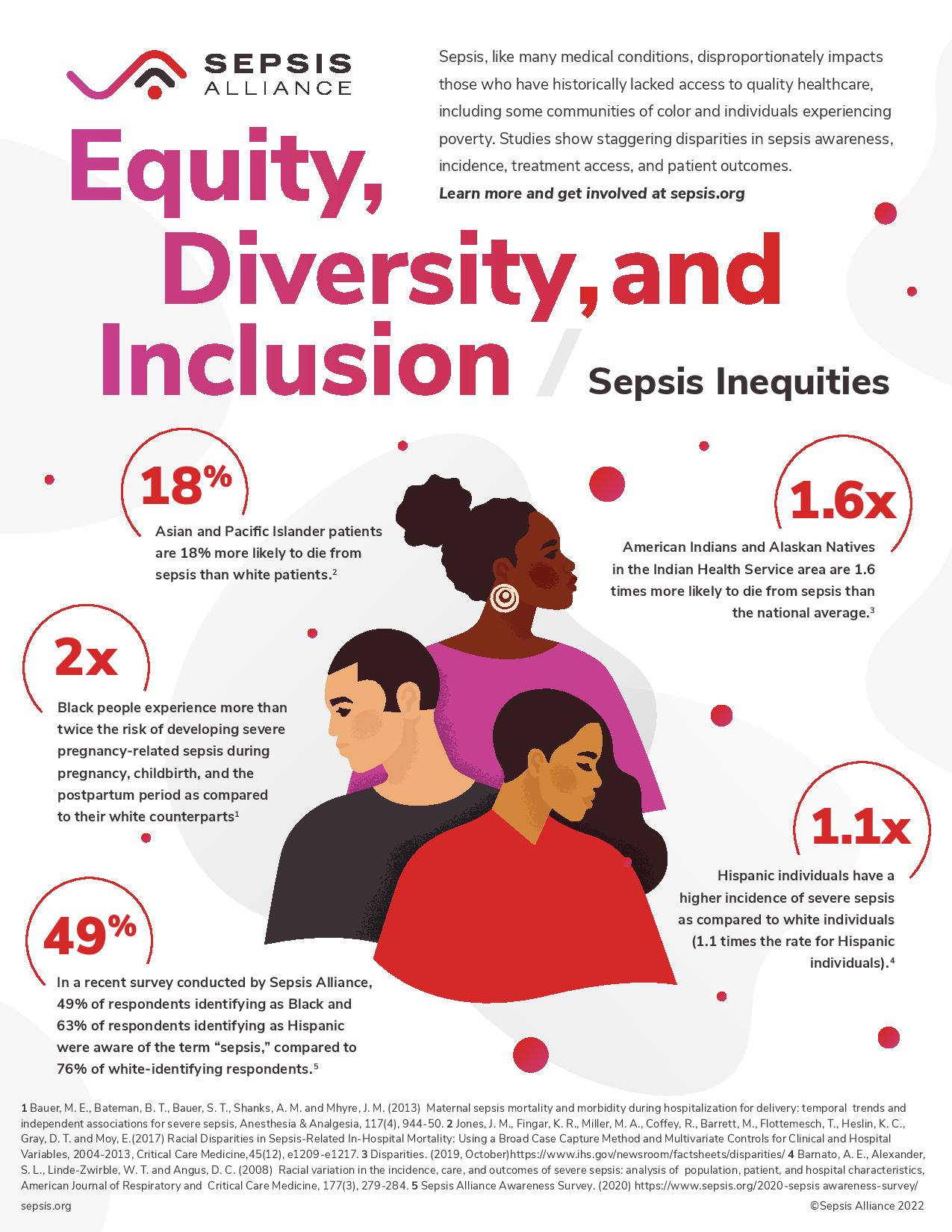National Minority Health Month: A Chance to Raise Awareness
April 4, 2022
Every April, Sepsis Alliance joins the Office of Minority Health (OMH), as well as healthcare providers, advocates, and educators across the country in observing National Minority Health Month. Throughout the month, we will highlight the importance of improving the health of minority communities, many of which have historically lacked access to high-quality medical care, including sepsis care. Because this year’s National Minority Health Month theme is “Give Your Community A Boost,” we’ll also be reiterating the importance of COVID-19 vaccines and boosters for sepsis prevention, and highlighting the many overlaps between sepsis, COVID-19, and the health inequities experienced by minority communities.
Sepsis Disparities
As many as 1.7 million people in the U.S. are diagnosed with sepsis annually. More than 350,000 of those people die, and many more experience lasting complications and costs—however, “communities of color experience a disproportionate burden of this sepsis-related suffering,” as Selena Gilles, DNP, and Sandy Cayo, DNP, point out in a jointly-written piece for sepsis.org. “A wide variability in mortality rates remain, with minority populations having increased incidence, hospitalizations, and complications when compared to white populations.”
Did you know that…
…Hispanic individuals experience 1.1 times the rate of severe sepsis as compared to white individuals?
…American Indians and Alaskan Natives in the Indian Health Service area are 1.6 times more likely to die from sepsis than the national average?
…Black people experience more than twice the risk of developing severe pregnancy-related sepsis during pregnancy, childbirth, and the postpartum period as compared to their white counterparts?
As with many medical conditions in the U.S., inequities in sepsis awareness, incidence, treatment access, and patient outcomes exist because of a combination of complex factors. These include social determinants of health like occupation and level of education, as well as “challenges and barriers related to implicit bias, structural racism, and medical mistrust,” as Dr. Gilles and Dr. Cayo explain. “Structural racism has been determined as a risk factor contributing to disparities in healthcare. Implicit or unconscious bias is the association of negative attributes with individuals based on irrelevant characteristics such as race or gender. Each plays a role in patient outcomes, morbidity, and mortality.”
Sepsis Alliance continues to recognize its responsibility, as part of the larger health sector, for working to address these disparities and health inequities. Seeking greater health equity is one of our top advocacy priorities. Learn more about our commitment to foster equity, diversity, and inclusion here, and about the equity work we’ve embarked on so far here.
This Year: Give Your Community A Boost
In response to vaccine hesitancy and disparities in acquired booster shots across lines of race and ethnicity, the Office of Minority Health (OMH) designated “Give Your Community a Boost” as this year’s theme for National Minority Health Month. The CDC reports that as of March 2022, only 43.5% of Black individuals and 40.4% of Hispanic/Latino individuals who are eligible for a booster shot have received one, compared to 54.3% of eligible white individuals.
“This year’s theme focuses on the continued importance of COVID-19 vaccination, including boosters, as one of the strongest tools we have to end the COVID-19 pandemic that has disproportionately affected communities of color,” the OMH explains in a statement. “Experiences with racism and discrimination can contribute to mistrust of the healthcare system among racial and ethnic minority groups, leading to mistrust of factual information on vaccines and boosters.”
COVID-19 infections, when severe, can progress to viral sepsis, which makes vaccines and boosters also the best way to prevent COVID-19-related sepsis. This is an especially important message to share in communities of color, where both medical mistrust and negative outcomes from coronavirus infections are disproportionately high. “COVID-19 has thrown into sharp relief the long-existing health disparities closely linked with social, economic, and environmental disadvantages,” reflect Dr. Gilles and Dr. Cayo. “And, as COVID-19 is an on-ramp to sepsis, it has highlighted stark sepsis-related disparities in turn.”
National Minority Health Month 2022 presents us with a chance to raise awareness of these intersecting U.S. health crises: sepsis, COVID-19, and inequities experienced by minority communities. We invite you to learn more by visiting the Office of Minority Health website, downloading Sepsis Alliance’s Sepsis and Health Equity fact sheet, and by subscribing to our advocacy newsletter to stay up-to-date on our health equity work.
Sepsis Inequities Infographic (click to download):































